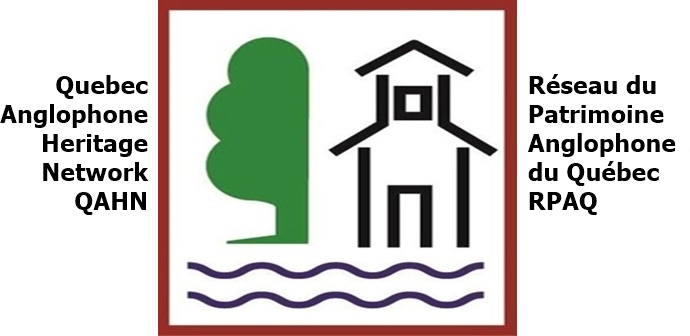We are delighted to have an amazing group of speakers participating in our Virtual Genealogy Conference from 9-13 February 2022.
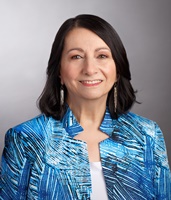
Margaret R. Fortier
Margaret Rose Fortier, is a Board-certified genealogical researcher, writer, and lecturer. Named after her grandmothers and inspired by her mother’s phenomenal memory, she has been researching for 20 years. She specializes in immigrant ancestors to New England. A graduate of Boston College and Bentley University, she holds a Certificate in Genealogical Research from Boston University. She serves on the board of the Association of Professional Genealogists and is a facilitator for the Certification Discussion Group (CDG). Her article, "The Identity of Alcina, Wife of Oscar Furkey, of Quebec and Vermont," was published by the National Genealogical Society Quarterly in 2020. She is eternally grateful that her husband’s French-Canadian Furkey ancestors changed their name back to Fortier.
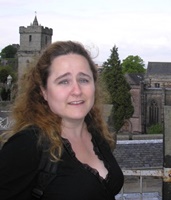
Gillian Leitch, PhD
Dr. Gillian Leitch is a Historical Researcher (Senior Researcher and Analyst) at a private research company in Ottawa, ON. Her research includes the way in which British immigrants to Canada identified and celebrated their identity in the nineteenth century, and created social and familial networks in the new and old worlds, particularly in Quebec, Ontario and British Columbia. She is also a professional genealogist. Dr. Gillian Leitch has written extensively on popular culture – specifically on science fiction and time travel.

Eric Pouliot-Thisdale
Eric Pouliot-Thisdale holds a Bachelor's degree in History and a minor in Social Science from the Université du Québec à Montréal (UQAM). He is currently a researcher in the Department of Demography at the Université de Montréal (UDeM).
A researcher for the past 20 years in the field of public, historical, political and demographic archives from various sources, he has conducted various research for Band Councils in Quebec and for various Aboriginal and non-Aboriginal organizations in Canada in historical and sociological matters.
He was previously a contributor to the Kahnawake weekly newspaper, The Eastern Door, from 2015 to 2018. http://www.easterndoor.com/ and has also completed reports for some firms on cases involving federal and provincial jurisdiction over hunting and territorial rights.
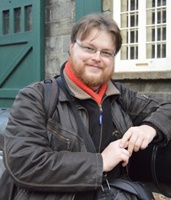
Joseph Gagné
Joseph Gagné is a young professional historian. Franco-Ontarian from Chapleau in Northern Ontario, he is currently a post-doctoral researcher at the University of Windsor. His field of study is the 18th century and he is a specialist of the Seven Years’ War (1754-1763). He is currently researching the role of women camp followers during the French & Indian War. Author of the book Inconquis : Deux retraites françaises vers la Louisiane après 1760 at Éditions du Septentrion, he also blogs at Curious New France. Active in Québec, Ontario, and the United States, he is present on social media and in traditional media. Bon vivant, cat person and rum enthusiast, he also has a penchant for weird historical anecdotes.
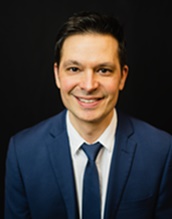
André-Carl Vachon
André-Carl Vachon s’intéresse à l’histoire acadienne depuis 1993. Il détient une maîtrise en histoire acadienne (UQTR 2018). Il est l’auteur de l’essai Les déportations des Acadiens et de leur arrivée au Québec, publié en 2014 aux éditions La Grande Marée. En 2015, M. Vachon a reçu entre autres le prix intergouvernemental Acadie-Québec, ainsi qu’une mention du jury du prix international France-Acadie 2015. En 2016, M. Vachon publie deux essais aux éditions La Grande Marée qui se sont vus décerner le prix Robert-Prévost 2018. Le premier, Les Acadiens déportés qui acceptèrent l’offre de Murray, l’auteur a reçu la bourse de création des Écrivains francophones d’Amérique 2016, le prix Percy-W.-Foy 2016 et le prix France-Acadie 2018. Le deuxième, Une petite Cadie en Martinique, l’auteur a reçu la médaille de la ville du Morne Rouge, Martinique. En 2018, l’auteur a publié un livre publié également aux éditions La Grande Marée : Histoire de l’Acadie de la fondation aux déportations, tome 1 (1603-1710). En 2019, il a publié son premier récit, Raconte-moi la Déportation des Acadiens, dans la collection jeunesse des Éditions Le Petit Homme. Pour ce livre, il a été finaliste pour le prix Éloize 2020 « Artiste de l’Acadie du Québec ». Puis, son livre Histoire de l’Acadie de la fondation aux déportations, tome 2 (1710-1763) a été publié en août 2019. En novembre 2019, il a reçu le prix Philippe-Aubert-de-Gaspé pour sa contribution exceptionnelle à l’histoire et à son amour de l’Acadie. Puis, il a publié aux éditions La Grande Marée en 2020 son mémoire de maîtrise : Les réfugiés et miliciens acadiens en Nouvelle-France. 1755-1763. Ensuite, il a été président d’honneur du 30e Salon du livre de Dieppe en octobre 2020. Finalement, son essai La colonisation de l’Acadie. 1632-1654 sera publié au début de l’année 2022.
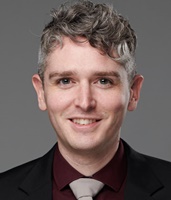
Dr. Tommy Harding PhD
As a specialist in forensic biology at the Laboratoire de sciences judiciaires et de médecine légale (LSJML) since 2020, Tommy Harding examines exhibits sent by Québec’s police forces and coroners in search of DNA evidence. Between 2018 and 2020, Dr. Harding worked with a team of multidisciplinary researchers on a method aimed at identifying human remains exhumed from historical cemeteries by combining genetic and genealogical data. Now a LSJML biologist, he contributes to the development of genetic genealogy within the field of forensics.
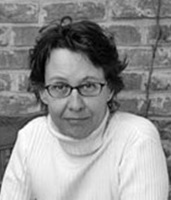
Denyse Beaugrand-Champagne
Denyse Beaugrand-Champagne, historian, genealogist and archivist founded HISTOQUEST in 1997. She has researched different cases for the Canadian, American and British version of the series Who Do You Think You Are? and it's Quebec version Qui êtes-vous? She is presently researching the Radio-Canada TV series Deuxième chance trying to locate lost friends and for which she was nominated for a Prix Gémeaux; she was also the Family Historian behind the TV series ORIGINES researching first settlers’ families.
Denyse Beaugrand-Champagne has published articles in American-Canadian Genealogist, NGS Magazine, Mémoires, L’Ancêtre, etc.; she won the Percy-W.-Foy award for her article about Protestant families from Alsace wrongfully identified by many as Acadian and Catholics. Her research results were published in Québec in Mémoires (no 239, 2004) and again in France (Alsace), in Pays d'Alsace – cahier varia (no 214, 1-2006).
Denyse Beaugrand-Champagne was Reference Archivist at Bibliothèque et Archives nationales du Québec (BAnQ) and she is often invited to address university students or genealogists on topics like coroners' inquests, probated wills, estate inventories, guardianship records, newspapers on line, City Directories, judicial archives in general, etc.

Pierre Gendreau-Hétu
Pierre Gendreau-Hétu studied linguistics at the Université de Montréal. His graduate research focused on writing systems and their historical typologies. Questions of onomastics subsequently caught the attention of this independent researcher, notably the origin and evolution of surnames in French Canada. This orientation motivated Mr. Gendreau-Hétu's interest in genealogy, whose scientific horizon was then redefined by the genomic revolution.
The history of human populations has undergone a profound renewal since the introduction of DNA data and Mr. Gendreau-Hétu has been contributing to this regeneration since 2012 through his research in genetic genealogy. This activity was first part of the California-born French Heritage DNA Project, and then with the Quebec yDNA and mtDNA Projects, of which he is the founder. These three projects, which together have more than 10,000 members, target the establishment of ancestral DNA signatures through citizen science. Dr. Gendreau-Hétu's work, consisting of publications, conferences, courses and workshops, supports a fertile mediation between genealogy, genetic anthropology and advances in genomics. Now established in Europe, this researcher has broadened his research framework with the Swiss Romandy yDNA and mtDNA Projects which he founded and which he now conducts in partnership with the Fondation Archives Vivantes of Switzerland.
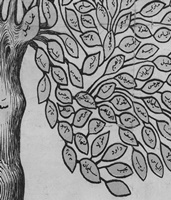
Brian Aboud
Brian Aboud is a sociologist specializing in ethnicity, migration and racism studies. His research and writing focus on the experience of Syrian-Ottoman immigrants in Montreal during the late 19th and early 20th centuries. He curated the exhibit Min Zamaan: the Syrian Lebanese Presence in Montreal 1880-1930 presented, in 2000-01, at the Centre d’Histoire de Montréal. Brian Aboud has a PhD in Sociology from the Australian National University. He teaches in the Humanities Department at Vanier College, Montreal.
Image credit: Detail of a family tree of a Syrian immigrant family in Montreal, circa 1920. Aboud-Ghattas family collection.
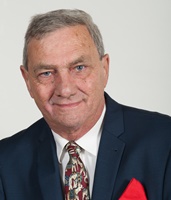
Fergus Keyes
Fergus Keyes is a 5th generation Quebecker with 100% Irish heritage. He has worked in restoring an old Irish cemetery in the community of Saint-Colomban; and is currently a Director of the Montreal Irish Monument Park Foundation – a group dedicated to building a beautiful world-class memorial space around the Black Rock in Montreal. He is also a Chartered Director with a speciality in Board & Governance issues, and serves on a number of diversified non-profit Boards.

Caitlin Bailey
An accomplished non-profit leader and public history professional, Caitlin Bailey is the Executive Director of two successful heritage non-profits, the Vimy Foundation and the Canadian Centre for the Great War. Caitlin is committed to highlighting the role of Canada’s history in public life and its contribution to maintaining a civil society. A graduate of the University of Calgary and McGill, Caitlin holds degrees in Russian Literature and Library and Information Sciences. She is a member of the Banff Forum.
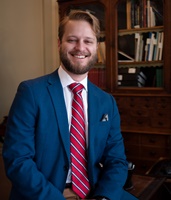
Philipp Portelance
Philipp Portelance is a PhD student in early modern history at the Université du Québec à Montréal and the University of Heidelberg. He is also the Director of operation at the Anciennes troupes militaires de Montréal, organization whose mission is to develop, promote and spread knowledge related to the heritage of military troops who participated in the development of Canada’s and Quebec’s society and culture.
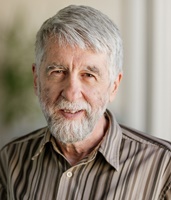
Richard Lougheed
Richard Lougheed is of Irish and Scottish Protestant origin with Loyalist and Huguenot ancestors, all of whom came to Ontario in the early to mid-1800s. His father and grandfather were United Church pastors and he himself was also for 7 years in Noranda, Quebec. Since obtaining a PhD in church history at Université de Montréal on the ex-priest Charles Chiniquy, he has taught in various French theological colleges. Long-time chair of the Société d'histoire du protestantisme franco-québécois, he collected a French Protestant archive and Rare Books Library at the college where he teaches, the École de théologie évangélique du Québec (ETEQ), affiliated with Université Laval. He has published many articles, church histories and three books and has been adding to his three Ancestry.ca trees since the 1980s. Married to a pediatrician, he continues the line with four children. He is 68 years old and has lived in NDG, Montreal since 1990.
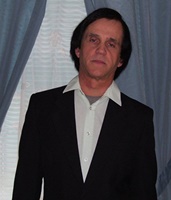
Jim Manson
Jim Manson is a Professor of History at Champlain College of Vermont’s international campus in Montreal and has also taught at the main campus in Burlington, Vermont. He teaches courses in Canadian History, Canadian – American Relations, Human Rights and Globalization and Technology and Development to students from the United States. He began his academic career in Jamaica in 1980 teaching West Indian History, after earning a BA in History from Concordia and a Diploma in Education, with a specialization in the teaching of history from McGill University . Upon returning to Canada, he completed an MA in History at Concordia University in 1983. His MA thesis dealt with U.S. involvement in Cuba, after the Spanish – American War. During the remainder of the 1980’s, Jim taught in the Quebec public school system and free lanced as a sportswriter for Canadian Press, covering the Montreal Expos and Montreal Canadiens. He began his university teaching career at Concordia, McGill and Bishop’s Universities during the early nineteen nineties after completing his comprehensive exams towards a doctorate in History (Canadian – American Relations) at Concordia. While teaching at Concordia he became involved with an organization known as Routes to Learning Canada, (RTL) whose regional office was located on campus. Between 2000 and 2008 he led scores of historical excursions across Quebec and Canada, while delivering thematically based lectures on the History of Canada to American Elderhostel participants.
In 2001, Jim wrote his first book dealing with the history of Quebec’s Eastern Townships – the area where he was born and still resides. The book, based on research conducted when he prepared his doctoral thesis, was entitled The Loyal Americans of New England and New York: Founders of the Townships of Lower Canada. Prominent Canadian Historian, J.I. Little cited The Loyal Americans as an influence in his study of the Eastern Townships during the War of 1812 and the Rebellions of 1837 – 38 entitled, Loyalties in Conflict: A Canadian Borderland in War and Rebellion 1812 – 1840. Since 2004, Jim has written three additional books focusing on the history of the Eastern Townships – From Isolation to Integration: The Changing Face of the Eastern Townships, 1830 – 1867, published in 2004, A Smaller World: The Eastern Townships and the Imperial Age, 1867 – 1918, published in 2005 and The Eastern Townships between the Two World Wars: Transition and Tragedy, which will be published early in 2022. The last three studies have been based on the research that he conducted, while preparing the Marion Phelps Eastern Townships Lecture Series, since its inception in 2000, sponsored by the Brome County Historical Society in Knowlton. This highly successful series deals with important social and political issues in the history of the Eastern Townships. Jim’s interest in Eastern Townships’ history owes in no small part to his association with Marion Phelps, who taught him in the sixth grade.
Jim lives in Cowansville, Quebec with his wife Dorothy and their cat Sam. In addition to teaching and writing about Canadian History his passions include a great affection for 1960’s rock and roll music and an unswerving devotion to the New York Yankees and the New York Giants.

Günter Mühlberger
Günter Mühlberger headed the Department for Digitisation and Digital Preservation at Innsbruck University from 2002 to 2012. He initiated the setup of the Digital Humanities Centre in Innsbruck in 2016 (chair since 2018). He coordinated the READ project (from 2016-2019) where the Transkribus platform was launched and he initiated the foundation of the READ-COOP SCE in 2019 (chair).
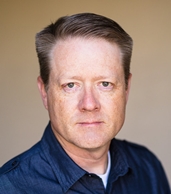
Mike Mansfield, MSLIS
Mike Mansfield works for MyHeritage.com as the Director of Content Operations. Previously Mike worked for Ancestry and FamilySearch and has been active in the genealogy and family history domain for the last 22 years. Mike has presented at numerous genealogical conferences and symposia in the United States, Canada, England, Scandinavia, and Australia. He holds a bachelor’s degree in Computer Science from Brigham Young University and a Master of Science in Library and Information Science from Syracuse University.
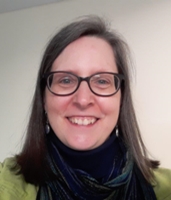
Sophie Tellier
À l’adolescence, sa curiosité pour ses ancêtres irlandais a engendré une passion pour la recherche généalogique qui l’a conduite à une carrière en archivistique. Elle a obtenu un baccalauréat en histoire (Université d’Ottawa, 1994) et une maîtrise en bibliothéconomie et sciences de l’information (Université de Montréal, 1996). Elle travaille comme Archiviste de référence à Bibliothèque et Archives Canada depuis 1997 tout en poursuivant ses recherches sur l’histoire de sa famille. Elle a également collaboré à la rédaction d’un livre sur ses ancêtres Tellier.
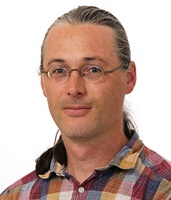
Maxime Gohier
Maxime Gohier est professeur d’histoire à l’Université du Québec à Rimouski. Spécialiste des Autochtones sous les régimes français et britannique, il s’intéresse essentiellement à l’histoire politique des communautés amérindiennes et à leurs relations avec l’État. Il est notamment l’auteur d’Onontio le médiateur : la gestion des conflits amérindiens en Nouvelle-France (1603-1717) (Septentrion, 2008) et d’une thèse de doctorat sur la pratique pétitionnaire des Autochtones de la vallée du Saint-Laurent. Son intérêt particulier pour le patrimoine lettré autochtone et pour la paléographie l’a amené à mettre sur pied, avec sa collègue Catherine Broué (UQAR), le projet « Nouvelle-France numérique ».
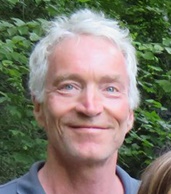
Dwane Wilkin
Dwane Wilkin has worked with the Quebec Anglophone Heritage Network (QAHN) since 2001 as a researcher, writer, editor, community organizer and administrator. Prior to his involvement in the heritage sector, Dwane worked as a newspaper reporter. He is a native of Quebec's Eastern Townships, where he makes his home in the hamlet of Trenholm, in the historic St. Francis River Valley.

